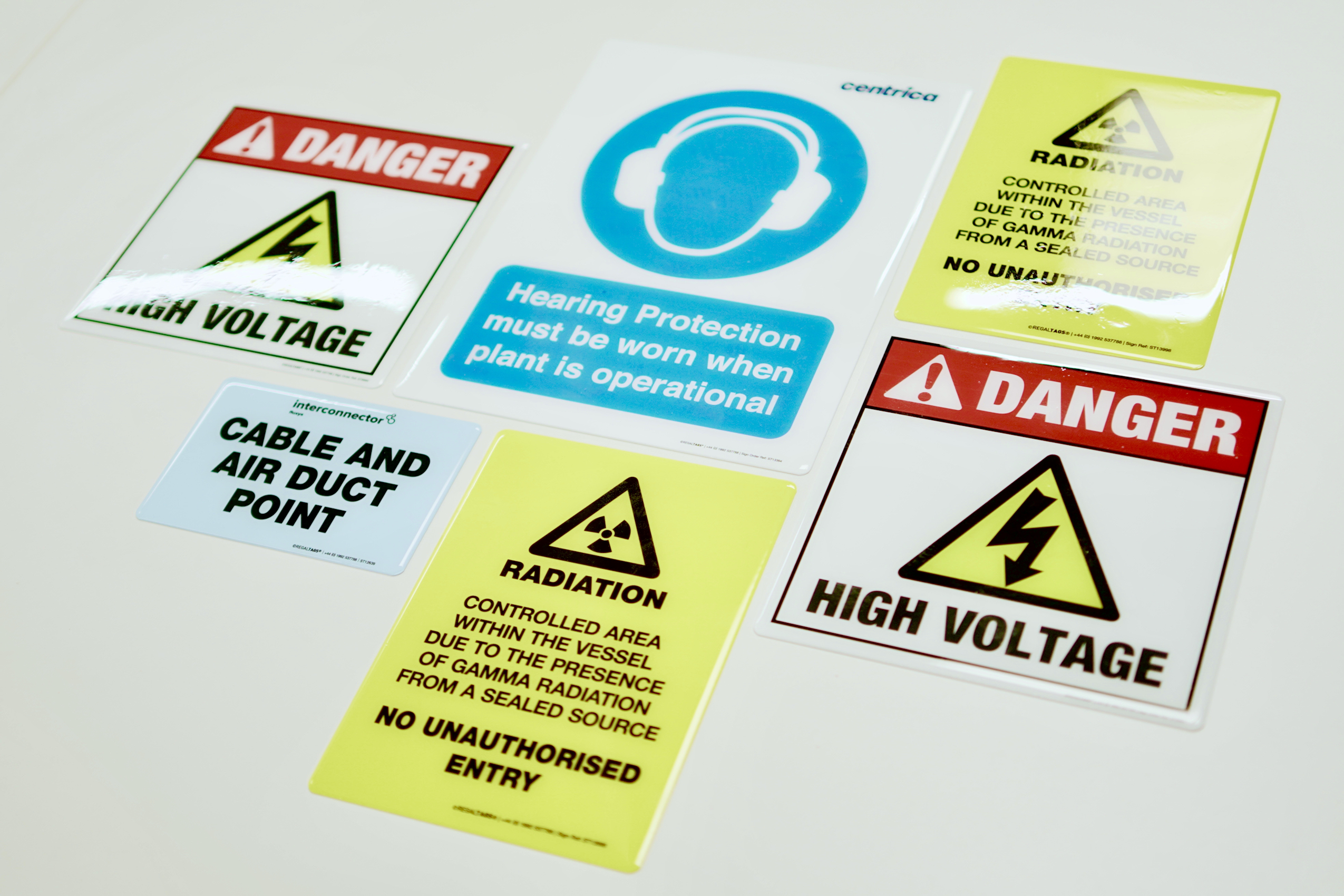What are the 4 types of workplace safety signs, and why are they important?
There are four main types of safety signs that are commonly used in the workplace to warn workers of hazards, instruct them of best practice, and keep them safe.
Workplace safety is of the utmost importance in any industry, especially in critical industries where workers may be exposed to a wide range of hazards, including dangerous machinery, toxic chemicals, extreme temperatures, and more. In order to protect workers from these hazards, employers must implement comprehensive safety protocols and procedures. One key aspect of maintaining a safe work environment is the use of safety signs. These signs serve to alert workers to potential hazards and provide important instructions for avoiding accidents and injuries.
There are four main types of safety signs that are commonly used in the workplace, and in this article, we will explore what they are, the purpose they serve, and why they are so important.
The 4 main types of workplace safety signs:
According to HSE, safety signs and signals are required where a significant risk to the health and safety of employees and others remains. These signs should be clear and durable, among other compulsory requirements which we explored in our last workplace safety sign blog.
HSE also advises not to use too many different signs in the workplace, as this can cause confusion and sometimes pose a risk to personnel. Instead, it is advised workplaces use these four types of signs to display critical safety messages:
Prohibition signs
Prohibition signs are typically used to warn workers not to engage in certain activities that could be dangerous or pose a risk to their safety. Prohibition signs often feature a red circle with a diagonal slash through the middle, and a black pictogram or text message indicating the prohibited action. For example, a prohibition sign may show a pictogram of a match with a line through it with the message “No naked flames” to warn workers of a potentially explosive or flammable environment.

Warning signs
Warning signs are typically used to caution workers about conditions that could cause injury or harm, and to provide important instructions for avoiding accidents. Warning signs often feature a yellow triangle with a black pictogram or text message indicating the potential hazard. For example, a warning sign may show a picture of a person slipping on a wet floor, along with the message "Caution: Wet Floor". Other common examples of warning signs include "Caution: Electric Shock Hazard", and "Caution: Falling Objects". It's important for workers to be aware of warning signs and to follow the instructions they provide in order to avoid accidents and injuries.

Mandatory signs
Mandatory signs are typically used to inform workers of the safety measures that must be followed in a particular area of the workplace. Mandatory signs often feature a blue circle with a white pictogram or text message indicating the required action. For example, a mandatory sign may show a picture of a person wearing protective goggles, along with the message "Wear Eye Protection". Other common examples of mandatory signs include "Use Ear Protection", "Wear a Hard Hat", and "Use Handrails". It's important for workers to be aware of mandatory signs and to follow the instructions they provide in order to ensure their own safety and the safety of those around them.

Emergency signs
Emergency signs are typically used to help workers quickly and easily find the equipment or procedures they need in the event of an emergency. Emergency signs often feature a white pictogram or text message on a green background and may include an arrow or other directional indicator. For example, an emergency sign may show a picture of a fire extinguisher, along with the message "Fire Extinguisher" and an arrow pointing to the location of the fire extinguisher. Other common examples of emergency signs include "First Aid Kit", "Emergency Exit", and "Eyewash Station". It's important for workers to be familiar with emergency signs and to know where to find the equipment and procedures they need in the event of an emergency. In environments that are prone to power outages or are often dark, photoluminescent safety signs are commonly used to display important emergency information.

Compliant workplace safety signs from REGALTAGS
At REGALTAGS, we provide tough workplace safety signage that meets all safety specifications and needs.
We believe every signage application is unique. That’s why all our signs are completely customisable so you can ensure they’ll be most effective for you. Our designers can guide you through with up-to-date knowledge of industry best practices and 1000’s of tried and tested existing signs for inspiration.
The durability of your signs is also important so that they always remain intact to carry out their important role. We provide a range of Tough, Tougher, and Toughest signs, as well as specialist options such as photoluminescent and barrier signs for all your signage needs.
In our range of tough, tougher, and toughest safety signs, we offer:
- UV and fade resistance
- Freeze-proof
- Lightweight options
- 100% recyclable materials
- Scratch- and scuff-resistance
- Customisability
If you’d like to find out more about how we can help with your safety signs, contact our friendly team at REGALTAGS® today. We’re more than happy to answer any questions you have and can guide you through each material option.
Subscribe
Join 10,000+ others receiving our monthly updates. Free Tag knowledge delivered straight to your inbox.





